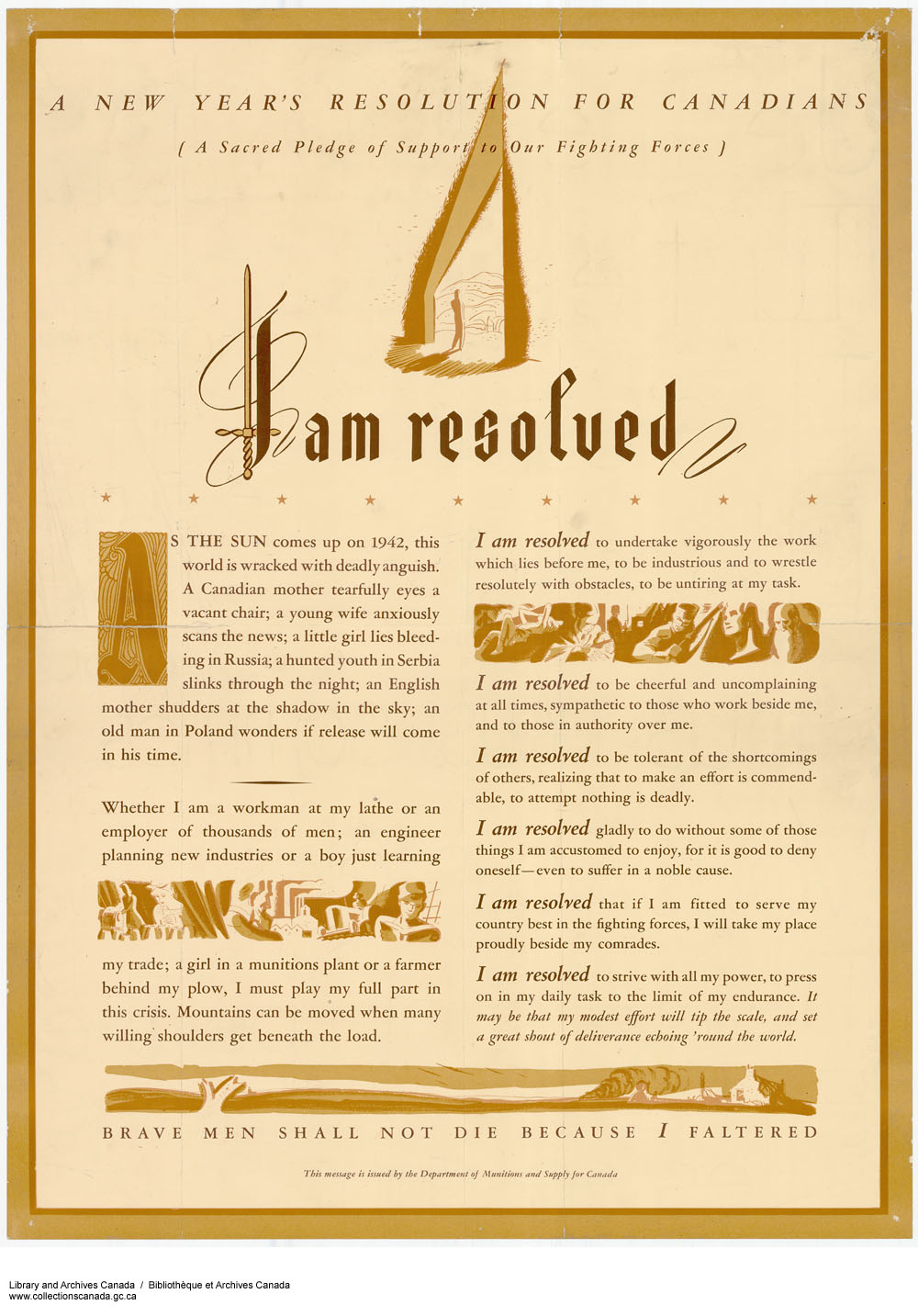 |
| All soft-caps and no steel-helmets in this British Recruitment Poster, 1915. Credit: Library and Archives Canada, Acc. No. 1983-28-1325 |
With the coming of 1942, Canada's Department of Munitions and Supply opted for a more emotional appeal in hopes to channel New Year's resolutions. Canada's broad mobilization for war in the previous year and a half is evident, as a limited liability strategy turned into a full-scale war effort. The text-heavy poster is clearly aimed at increasing efforts on the home front to back the attack, yet includes a phrase imploring those best fit for military service to serve in the armed forces.
"I will resolve that if I am fitted to serve my country in the armed forces. I will take my place proudly beside my comrades."
 |
| Credit: Library and Archives Canada, Acc. No. R1300-262 |
Hoping to drive a wedge between the homefront and the battlefield, the German pamphlet depicted a raucous orgy of heartless capitalism. "THEY know what you are fighting for when they pocket their huge profits and big paychecks." Tapping in to the seasonal urge to ponder the future, the ultimate anxieties of the soldier were exploited.
"What has the new year in store for you?
Will you die on the battlefield?
Will you be maimed or blinded?
Who knows?"

New year's celebrations date back to the Romans. Perhaps they too used military propaganda. Their large arena displays were one way they could use display to seek allegiance from the masses. It seems, however, the expansion of print media made attempts to spread the a militant message easier. Glossy posters and the ability to bombard the enemy with paper messages spread material quickly throughout the target population. The effectiveness of propaganda in any era is a contentious topic, but the concentrated resources forwarded to the efforts of those such as Joseph Goebbels, or on a smaller scale, John Grierson, of Canada's Department of Wartime Information, point to the Second World War as the high watermark of global propaganda. Arguably, the introduction of the film reel changed the nature of propaganda, as the experiential effect of movies and newsreels drew participants to the medium's message.

No comments:
Post a Comment